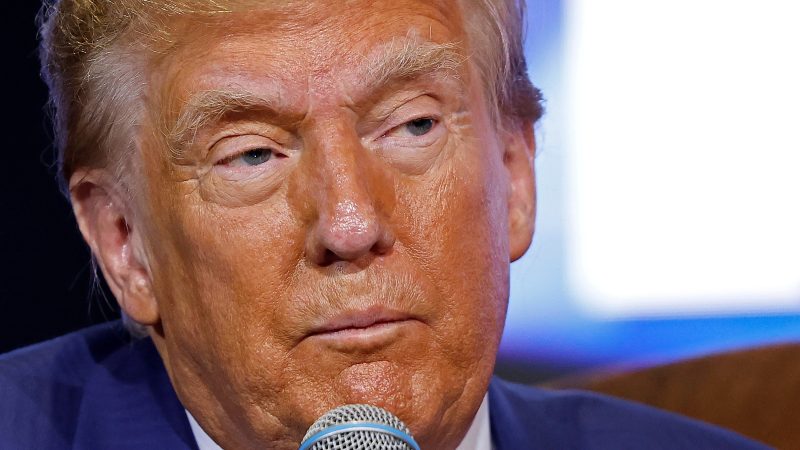(The Hill) — A growing number of Americans are worried about former President Trump’s age, according to a new survey released late Friday.
The new poll, done by YouGov for the Stanford-Arizona State-Yale Election Panel (SAY24), found that around 44 percent of Americans said Trump is too old to be president while the other 46 percent said otherwise. The number grew from 35 percent to 44 percent between February and October while the portion that said he was not too old dropped from 53 percent to 46 percent, YouGov noted.
Despite an increasing number of Americans expressing concern over the Republican nominee’s age, the number of Americans who said Biden was too old went up between February and July this year, going up from 63 percent to 70 percent. During the same stretch, those saying he wasn’t too old for the job dropped from 25 percent to 18 percent, according to the poll.
Biden withdrew from the presidential race on July 21, after Democrats mounted pressure following his disastrous debate performance on CNN versus Trump.
Senate Dems planning to push through Harris would-be Cabinet early
Over half of Americans, 56 percent, said they believe that Trump’s age and health would impact his ability to serve as commander-in-chief at least a little bit, according to another YouGov poll conducted earlier this month.
Over one-third, 36 percent, said the former president will be “severely” undercut by his age and health. Another one-third, 33 percent, said those factors will not impact the Republican nominee.
Inversely, 62 percent of Americans said Harris’s health and age will not affect her work in the White House if she is elected president, according to the survey. Some 16 percent said it would have “little” effect while 9 percent argued she would be “severely” limited.
The YouGov poll done for SAY24 was conducted on Feb.21 and Oct. 22 — and between 4,730 and 6,813 respondents completed their surveys. The margin of error ranged from 1.9 percent and 2.5 percent.
The other YouGov poll was conducted from Oct. 18 to 20 among 1081 U.S. adults. The margin of error was around 4 percent.
